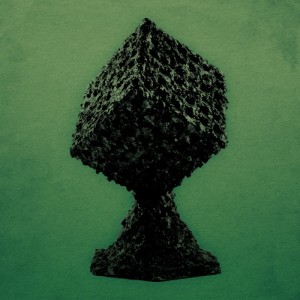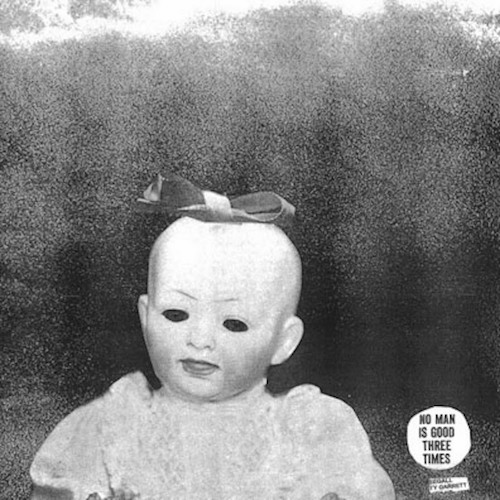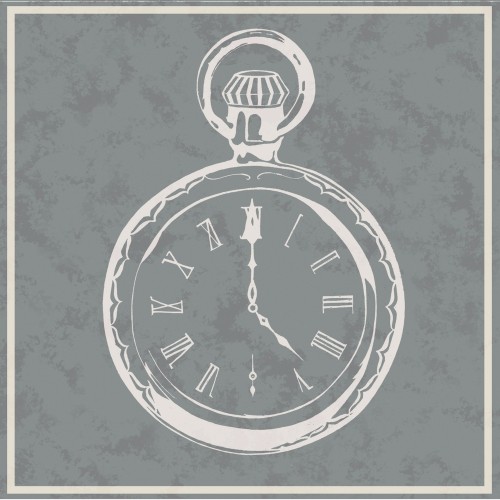 Release Date: August 25, 2014
Release Date: August 25, 2014





Merchandise’s latest LP After The End is texturally gorgeous, but wallows in the same whiney, reverb-drenched apathy as every other self-indulgent, DIY indie act circulating the internet.
It’s been two years since Merchandise released its breakthrough sophomore album Children of Desire, and at this point, the band is confident in its self-made skin. The smooth, reverb-soaked instrumentals behind Merchandise’s tunes make it easy on the ears, but literally all of After The End’s textures feel soft, warm, and comfortable. With no sonic contrast whatsoever, the album fades almost immediately into the background, where its inoffensive textures linger contently.
Now at its new home, British label 4AD, Merchandise takes advantage of amenities like engineer Gareth Jones (Depeche Mode, Interpol, Grizzly Bear), who mixed the new LP.
With upbeat acoustic guitar strums and poppy lead guitar lines, After The End displays a strong R.E.M. influence (“Enemy,” “Little Killer”). Unfortunately, Merchandise forgoes the crisp electric guitars and crystal clear vocals that intensify R.E.M.’s soft sounds.
The grittiest texture on the album appears in the slightly-distorted, low lead guitar line that opens mid-tempo rocker “Green Lady,” accompanied by Middle Eastern-sounding strings that populate the LP. These strings add a unique texture, but only truly shine on opener “Corridor,” a glittery instrumental that wouldn’t sound too out of place on an early ’70s Pink Floyd album. Merchandise’s auditory fog becomes so thick that all sincerity is lost on listeners, and since the sincerity of non-professional musicianship is the very characteristic that makes indie music so appealing, the album suffers greatly.
Hindering After The End further, Cox’s lazily muttered vocals weaken the album’s emotional impact. When he isn’t muttering something faux-poetic under his breath, he’s howling hyperbolically like a teenage hyena stuck in perpetual puberty. Cox’s vocals are moaned with an over-exaggerated agony sure to elicit eye-rolls from even the most sympathetic listeners. Though he often doubles his vocals with well-supported falsetto lines, Cox’s diction is practically nonexistent, making his lyrics completely unintelligible.
Lyrical themes on After The End are often indistinguishable, and the phrases that do emerge arrive cheesy and overcooked.
The unpoetic, bitter lines “Oh/You’re better off back in your place/on the dark side of the moon” spoil the semi-pleasant “Looking Glass Waltz.” Cox also peppers the album with a multitude of unnecessary “yeah”s and “oh”s, following lines that weren’t particularly expressive or emotionally strenuous.
Luckily, Cox’s baritone moan and vapid lyrics don’t permeate After The End completely; the upbeat “Telephone” acts as a silver lining with its catchy, jumping bass line. Unlike most of the album, “Telephone” works in a tightly regimented structure and wastes no time wandering aimlessly through directionless acoustic guitars and glittery synths. With the clearest singing on the LP, “Telephone” also breaks Merchandise’s cycle of dreary, non-melodic vocal groans.
“Telephone” promises the most potential of any song on the record, and it only works because its music is as unashamedly poppy as its lyrics.
The self-awareness displayed on “Telephone” offers a reason to continue checking out Merchandise releases. The simple, almost childlike lyrics “I wait and I wait and I wait by the telephone/and I call and I call and I call but you don’t” present undeniable honesty, proving that the band knows the strengths of its warm, hazy sound and, if it would stop trying to romanticize its lyrics, could produce a great pop rock record.
After The End‘s beautiful soundscape loses steam after just a few tracks, and its serene haze may fare better in an EP format, with just 5-6 songs. Switching to EP format would also help Merchandise cut songs like “True Monument” and “Little Killer,” which add nothing to the band’s sound and only lengthen an already arduous album.
While After The End unveils potential for Merchandise’s soft, warm glow, most of the album consists of odd odds and ends that don’t add up to a cohesive musical statement. It’s certainly sonically comfortable—so comfortable, in fact, that most listeners will forget it’s even playing.
Merchandise – After The End tracklist:
- “Corridor”
- “Enemy”
- “True Monument”
- “Green Lady”
- “Life Outside The Mirror”
- “Telephone”
- “Little Killer”
- “Looking Glass Waltz”
- “After The End”
- “Exile and Ego”


